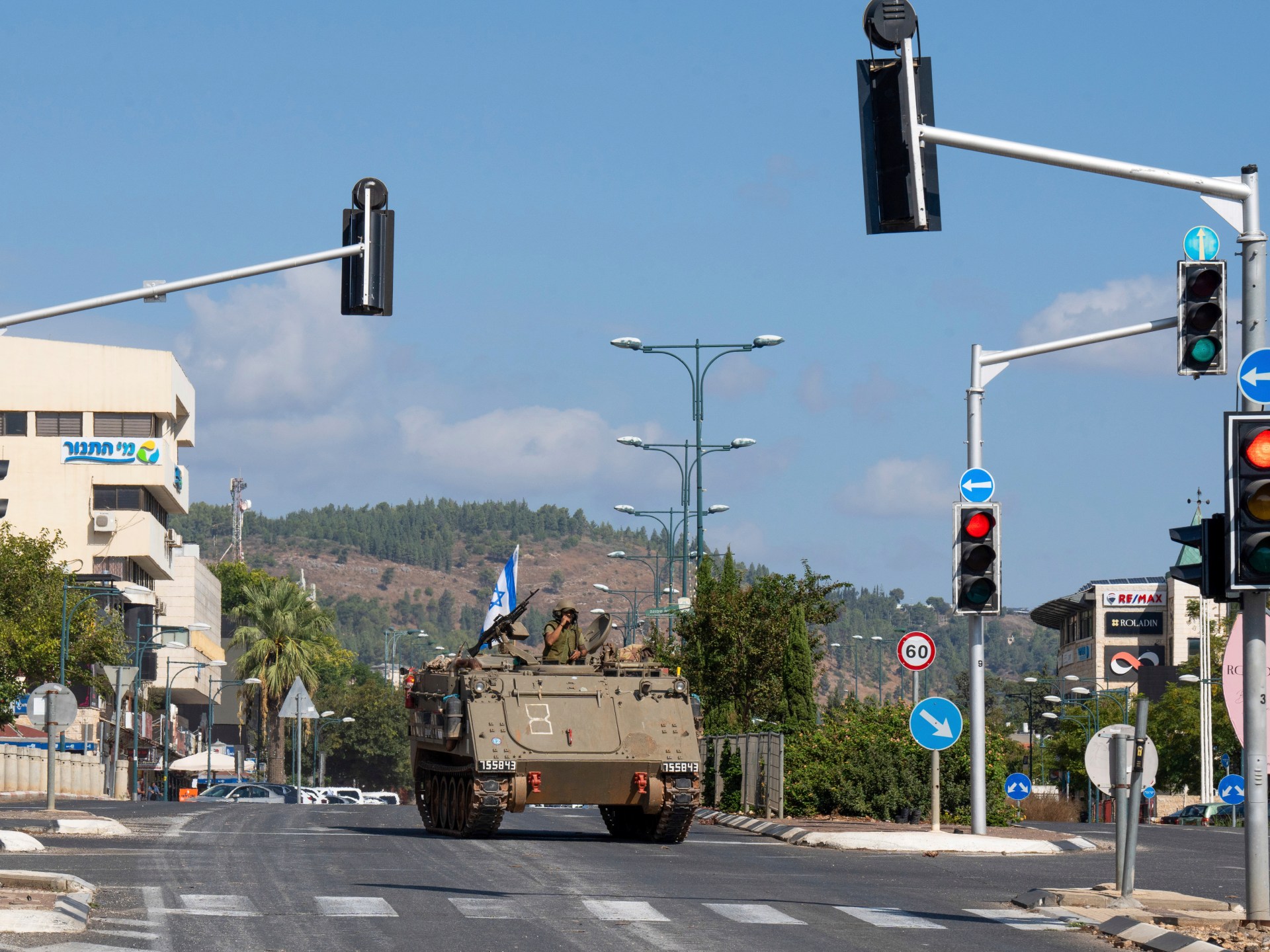Comments from the Israeli war cabinet member are the latest to hint at the possibility of an escalation with Hezbollah.
Senior Israeli minister Benny Gantz says the situation on the country’s border with Lebanon “must change”, hinting at the possibility of military escalation with the armed group Hezbollah.
Gantz, a member of Israel’s emergency war cabinet, told reporters on Wednesday the chance of a diplomatic solution to exchanges between Israel and armed groups in southern Lebanon is fast running out.
“The situation on Israel’s northern border demands change,” Gantz told a news conference.
“The stopwatch for a diplomatic solution is running out, if the world and the Lebanese government don’t act in order to prevent the firing on Israel’s northern residents, and to distance Hezbollah from the border, the [Israeli military] will do it.”
The remarks are the latest to raise concerns that Israel’s military campaign in Gaza could explode into a wider regional conflict, drawing in Iran-backed groups such as Hezbollah.
Israel and Hezbollah, along with a handful of smaller armed groups that operate in southern Lebanon, have settled into a steady rhythm of tit-for-tat exchanges since the current round of fighting between Hamas and Israel started on October 7, when the group launched an attack on southern Israel that killed more than 1,100 people.
Since then, Israel has been relentlessly bombing Gaza in a “genocidal” campaign, killing more than 21,000 people, most of them women and children, and displacing nearly its entire 2.3 million residents.
The Israeli offensive in Gaza triggered tensions along the Israel-Lebanon border, as intermittent exchange of fire between Israeli forces and Hezbollah were reported in the deadliest clashes since the two sides fought a full-scale war in 2006.
Tens of thousands of people in Israel and Lebanon have also been displaced, and more than 150 people, most of them Hezbollah fighters, killed on the Lebanese side since the exchanges began, according to a tally by the AFP news agency. The figure includes 20 civilians, including three journalists, the agency said.
On Tuesday, a Hezbollah attack injured 11 people in northern Israel while an Israeli attack on Bint Jbeil killed three people, including one Hezbollah fighter.
“Israeli warplanes are currently targeting towns that are even very far from the border,” Al Jazeera correspondent Ali Hashem reported from Bint Jbeil.
“The fact is that this area is now becoming a complete warzone, it’s becoming very dangerous, very risky, to go around, with the fact that you’re always anticipating an Israeli drone,” he added.
Thus far, however, such exchanges have stopped short of a more serious confrontation that would come with a steep cost for both sides, as well as civilian populations who live in communities near the Israel-Lebanon border.
The limited nature of the fighting had eased initial concerns about a larger war. But in recent weeks, Israeli officials have suggested that they could take stronger actions against Hezbollah, even as Israel’s campaign in Gaza comes under growing scrutiny.
Speaking on Wednesday on a tour near the border, Israel’s Foreign Minister Eli Cohen said Israel may target Hezbollah leader Hassan Nasrallah, a move that would almost certainly spark a larger conflict with the formidable armed group with strong links to Iran.
“We will operate to make the most of the diplomatic option,” Cohen said. “If it doesn’t work, all options are on the table.”
Check out our Latest News and Follow us at Facebook
Original Source

